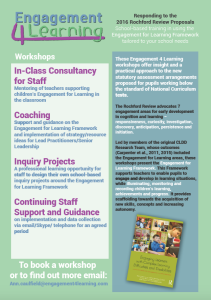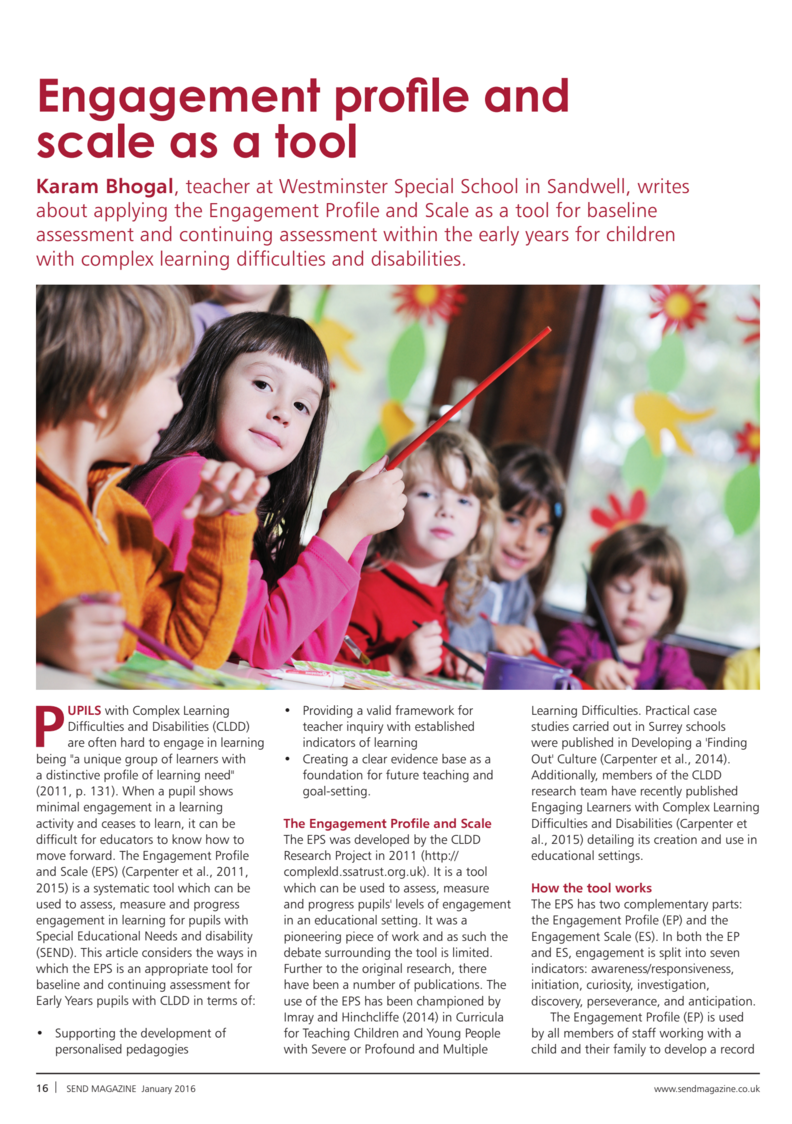
Teachers are growing in familiarity and confidence in the use of the Engagement Model, which became statutory summative assessment in September 2021.
They are realising its potential for a whole range of children ‘not engaged in subject specific learning’. As such, pedagogy is developing that supports classroom based formative assessment , and leads into the statutory summative assessment for EHCP meetings, Annual Reviews etc .
Teachers wishing to look deeper into the potential of Engagement ,and its evidence base , may wish to look at this podcast ‘What you really need to know about Engagement’, presented by Bev Cockbill and Professor Barry Carpenter.


